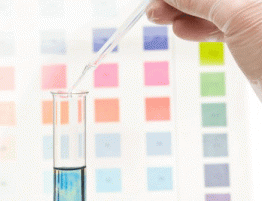
Patient Information Leaflets
Nephrectomy
What is a Nephrectomy?
A Nephrectomy is removal of a kidney or part of a kidney.
Partial Nephrectomy: removal of a portion of the viagra free trialviagra online kidney, where only the infected or diseased port of the kidney is removed.
Radical Nephrectomy: removal of the entire kidney, the ureter, the adrenal gland and some of the tissue surrounding the kidney.
Why do I need this operation?
- You will need an Nephrectomy if you suffer from any of the following:
- Serious kidney infections
- Non-functioning kidney
- Poly-cystic kidney disease
- A tumour of the kidney
- Preparation for the operation
A few tests will be required before the operation depending on your age and general health. There are usually performed the day before your operation.
They include:
- Blood Tests
- Urine Tests
- Chest x-ray or an abdominal x-ray
- Electrocardiogram (ECG), or non-invasive heart tracing
- What are the risks associated with the operation?
As with all operations, there are inherent risks associated with having a general anaesthetic. They include:
- Chest infection, due to a build-up secretions in the lungs, what is the dose especially in smokers.
Blood clots in the legs which can travel to the lung and can be potentially very serious.
Older people are more at risk of complications related to their heart around the time of surgery including heart attacks, irregular heart rhythms and strokes.
As the operation requires an incision to the abdomen there is always a risk of wound infection. Antibiotics are given for the first 24-48 hours after the operation to reduce this risk.
The operation
You will be given a general anaesthetic which requires you to fast from fluids and diet from 12 midnight. The doctor makes an incision (cut) on the abdomen and removes the kidney. The doctor may place a drain into the wound to drain any excess blood. A tube will also be inserted into the bladder to drain urine out of the body, this is known as a urinary catheter.
What to expect after the operation?
As mentioned above, you will have a urinary catheter and possibly a wound drain in place, both of which should cause minimal discomfort. The urinary catheter allows close observation of the function of your remaining kidney after the operation. Both the urinary catheter and the wound drain are removed 2 to 3 days after the operation. You viagraonline-rxgeneric may experience some discomfort for a day or two when you pass urine, this will improve.
You will have a dressing on your wound, this is usually changed after 48 hours and every other day thereafter.
Antibiotics will be given through your drip to minimize the risk of infection.
Painkillers including continuous morphine are also given through the drip to keep you as pain free and comfortable as possible. Fluids are administered continuously through a drip also. These are continued until you are able to take sufficient drinks, at least 6 to 8 large glasses per day.
A physiotherapist will also visit you after the operation. You will be encouraged to do deep breathing exercises and leg exercises to reduce the risk of developing a chest infection or blood clots. Once you are well enough, you should take short regular walks.
Home Care
Helpful hints for home
- Eat a well balanced diet with plenty of protein, fresh vegetables and fruit to promote wound healing.
- Take all medications as instructed on your discharge including antibiotics.
- Take regular gentle exercise e.g. short walks three times a day.
- Avoid sex for atleast 6 weeks.
- If your job does not involve any strenuous activity or heavy lifting, you may return to work after 3 weeks. However, if your job involves strenuous activity or heavy lifting, you should wait 6-8 weeks before returning to work
*******
You should contact Mother Teresa Unit, Galway Clinic if you have any concerns after you go home or if you have any of the following symptoms:
- High temperature
- Excessive bleeding
- Difficulty passing urine
- Vomiting
- Return of symptoms prior to operation
- Discharge form wound site
Compiled by: Marie Connolly
Sister
Mother Teresa Unit
Consultant Urologist
Mr. S. Jaffry

